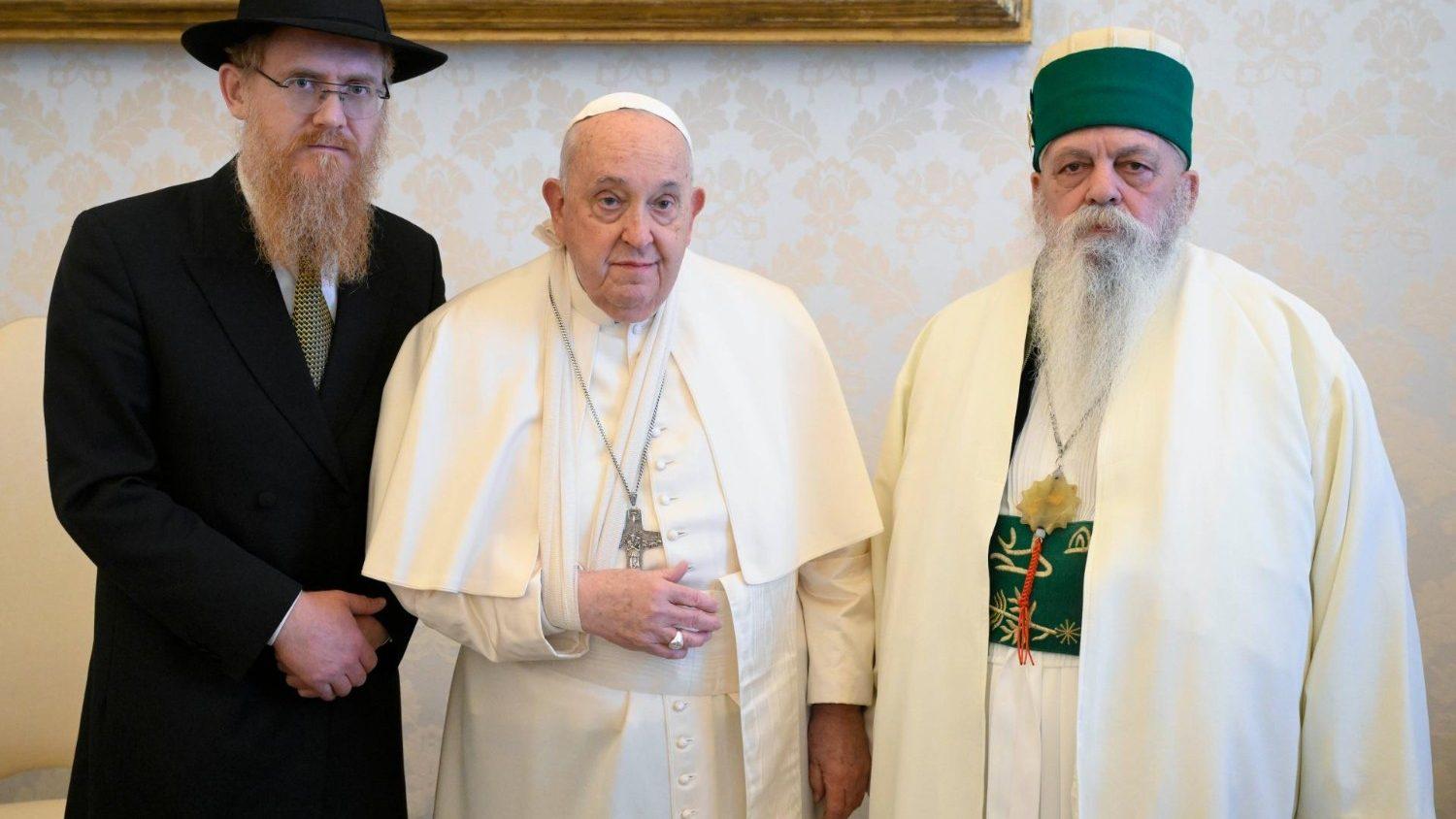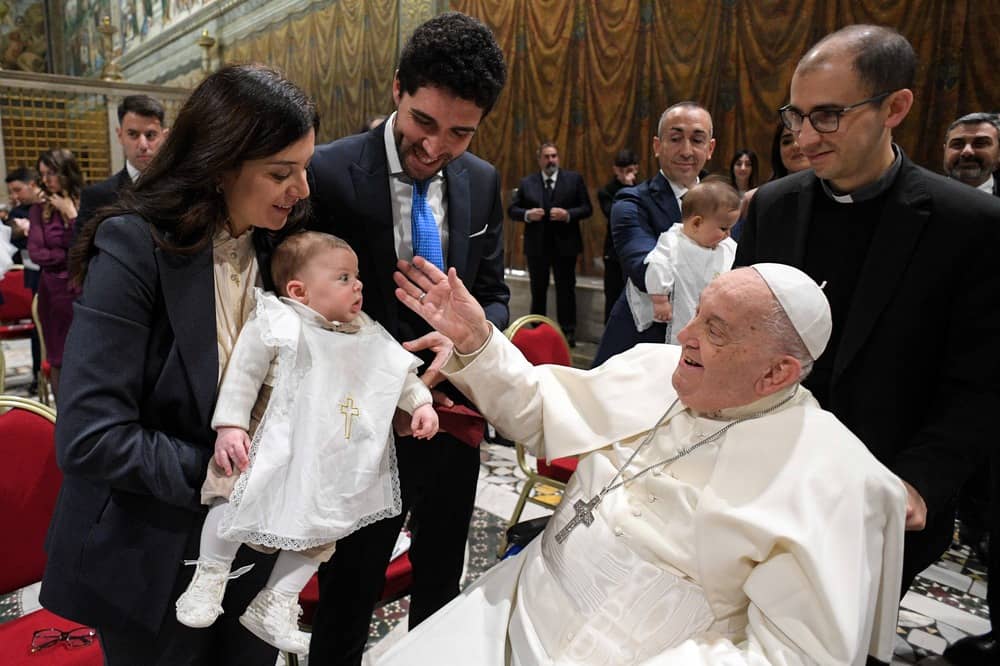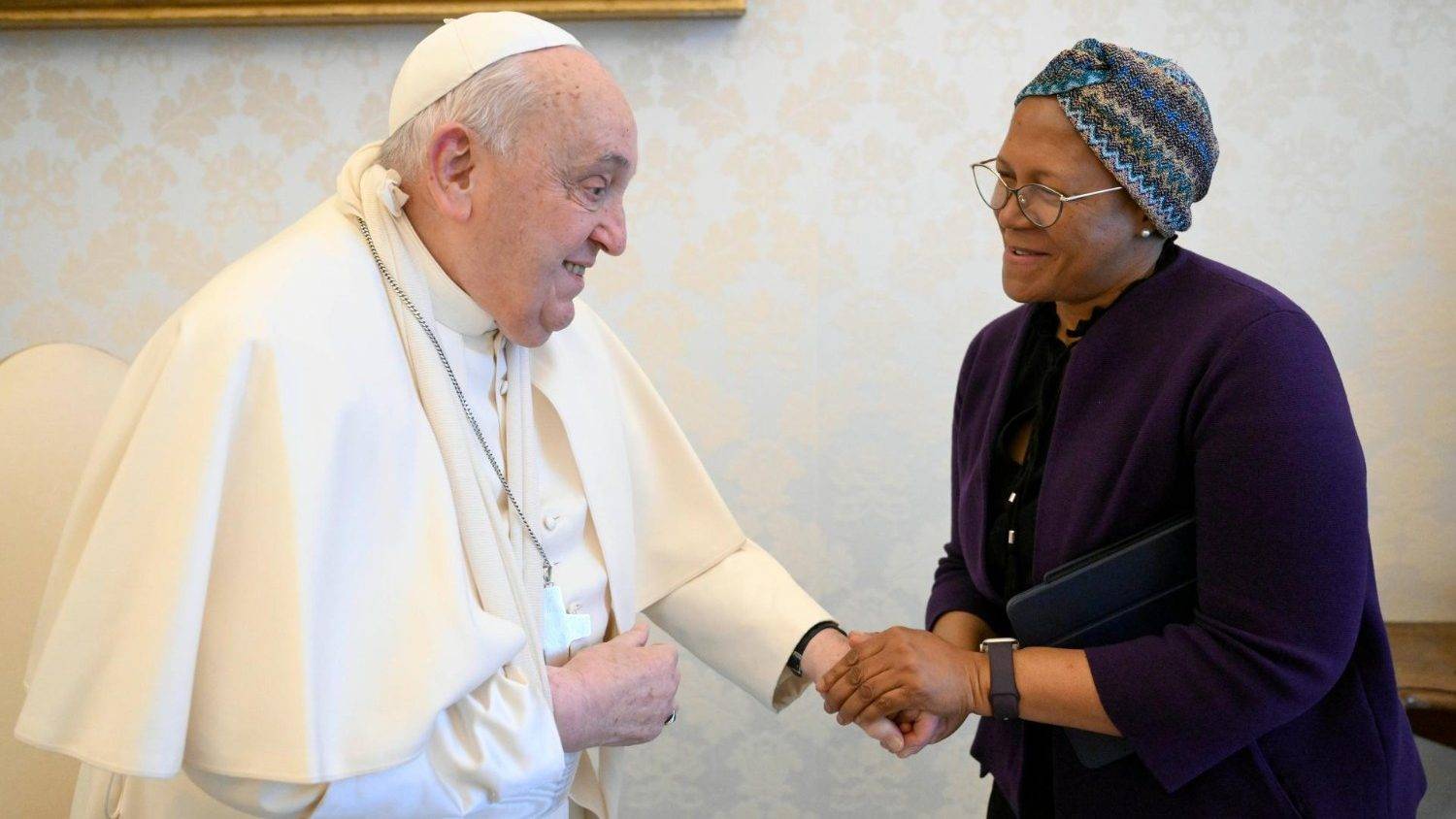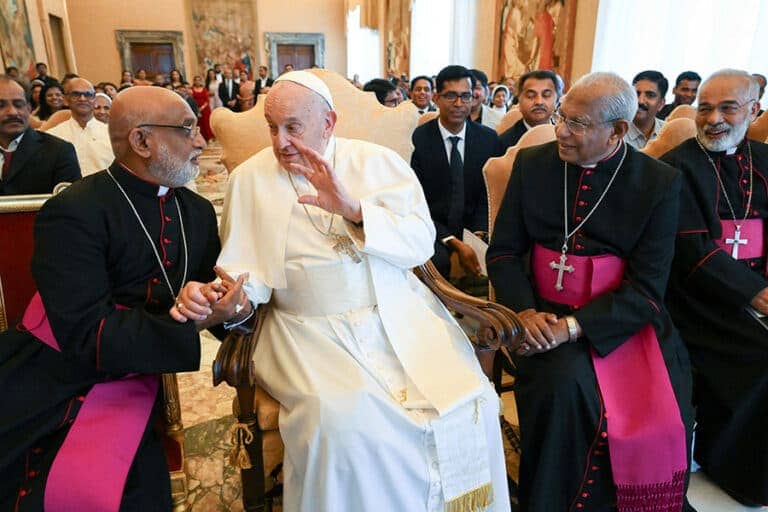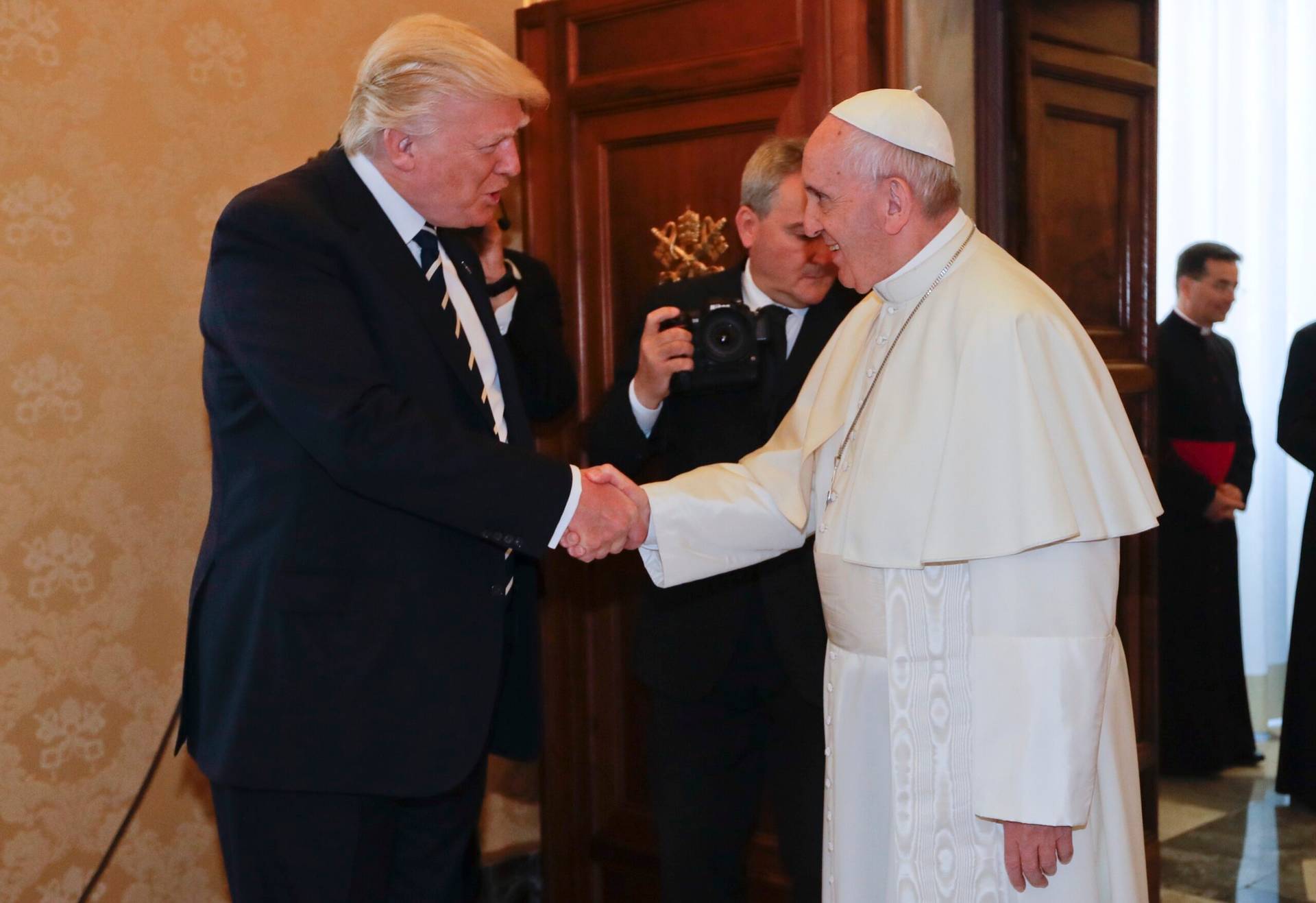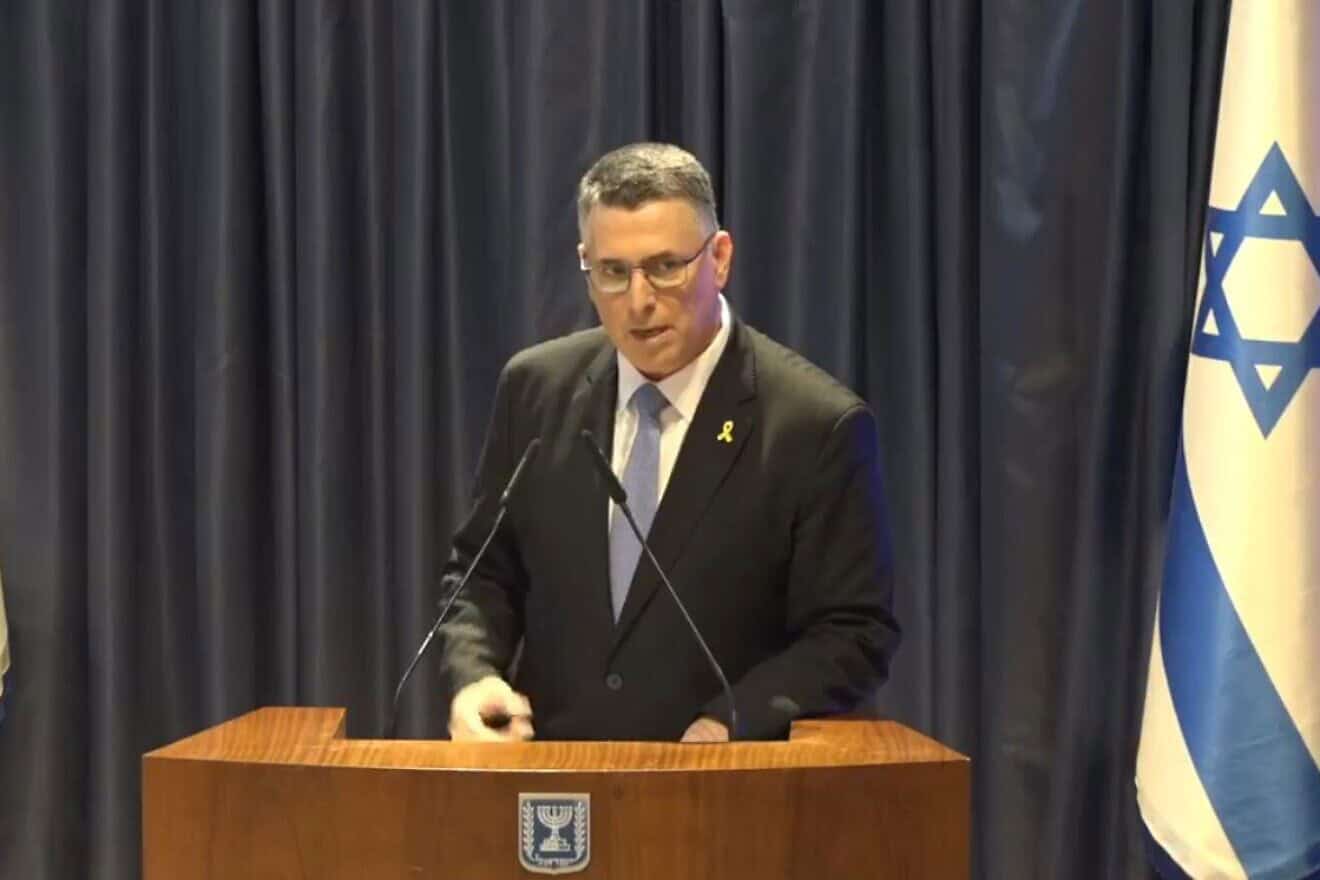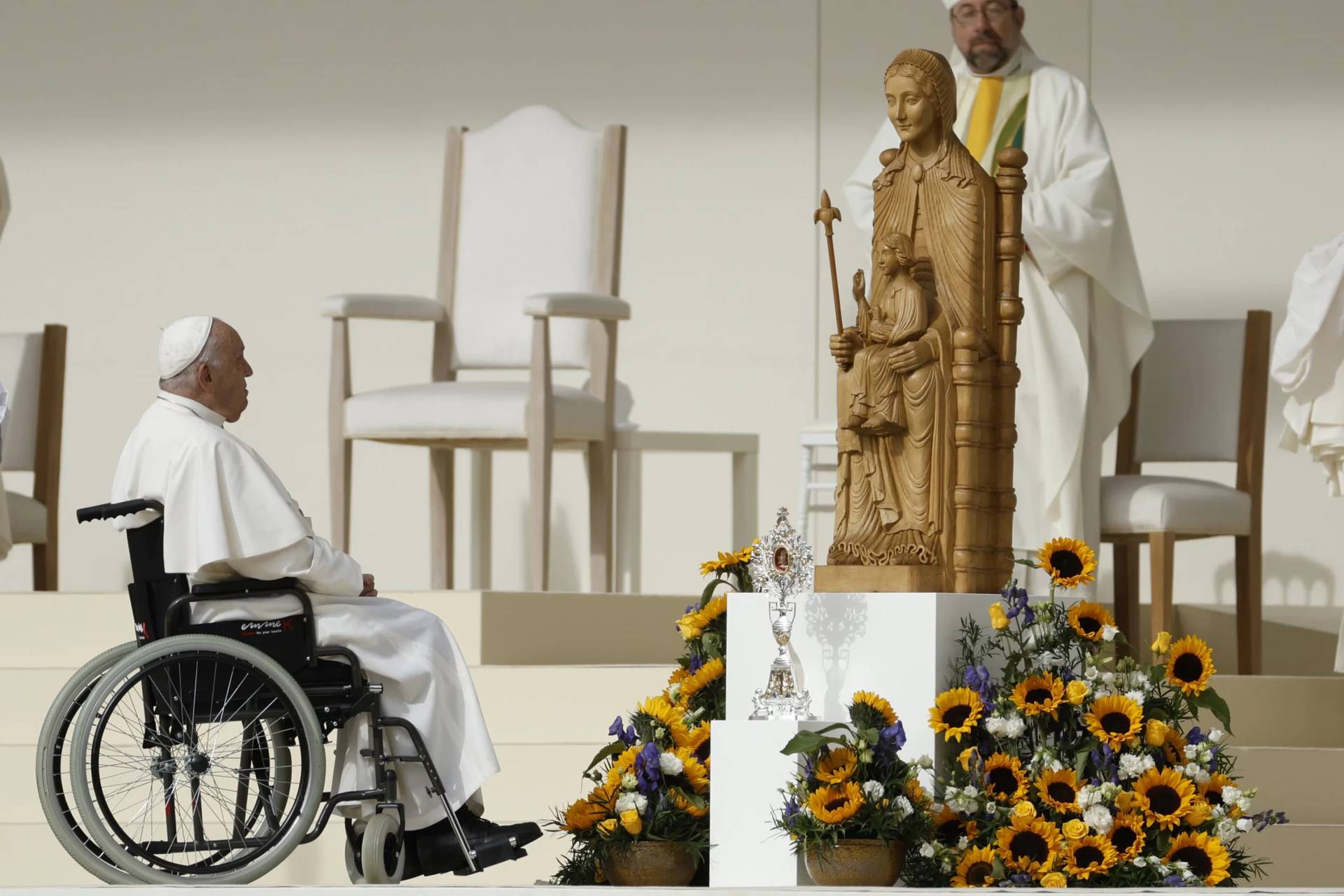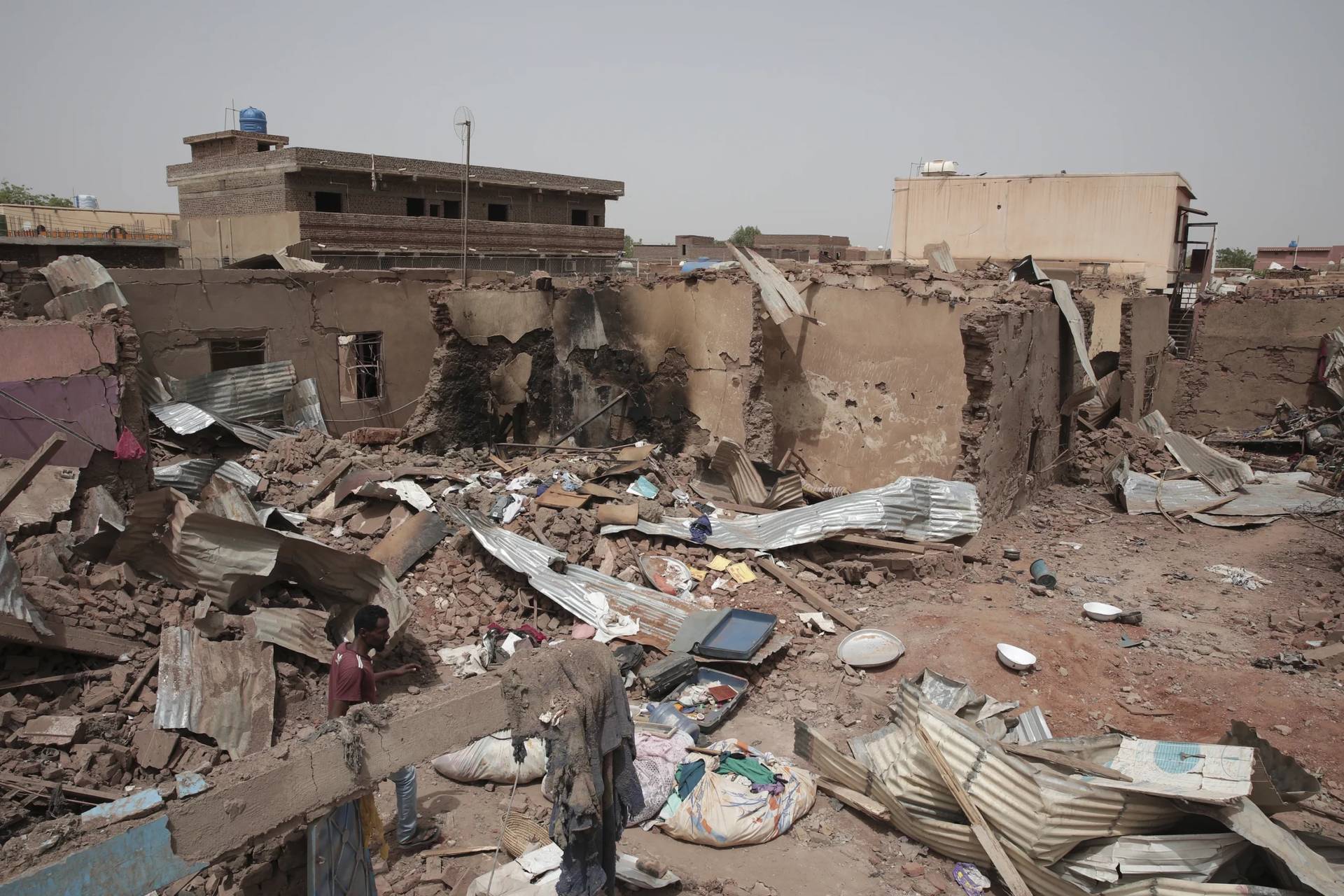Did the pope endorse a Vatican-style ministate for a Muslim community on Thursday?
The press in Albania seems to think so, after Pope Francis met with a delegation from the Muslim Bektashi Order of Dervishes, based in Albania.
Bektashism is an Islamic Sufi mystic order considered syncretic to both Sunni and Shia Muslims, with around 20 million adherents. Most of them are in Turkey, which expelled the Bektashi leadership – who went to Albania – in the 1920s after the erection of the modern Turkish state.
Francis had a seemingly ordinary meeting with its leader, Haxhi Baba Edmond Brahimaj, in the Vatican on Thursday.
“I offer a cordial greeting to this distinguished delegation from Albania and in particular from the Bektashi community, and I thank the Dicastery for Interreligious Dialogue for making this meeting possible,” the pontiff said.
“Whenever religious leaders come together in a spirit of mutual esteem and commit themselves to the culture of encounter through dialogue, mutual understanding and cooperation, our hope for a better and more just world is renewed and confirmed. How much our world needs such hope!” Francis said, making reference to the 2025 Jubilee.
“The friendly relations between the Catholic Church and Albania and the Bektashi community benefit us all, and I am confident that these bonds will grow ever stronger in the service of fraternity and peaceful coexistence between peoples,” he continued.
“In these troubled times, all of us are called to reject the logic of violence and discord, in order to embrace the logic of encounter, friendship and collaboration in the pursuit of the common good. Indeed, our religious convictions help us to embrace more clearly these fundamental values of our common humanity and thus ‘allow our different voices to unite in creating a melody of sublime nobility and beauty’,” the pope added.
He then thanked the small Muslim community for participating in the Prayer for Peace in the Balkans in 1993 and the 2011 World Day of Prayer for Peace in Assisi.
“I am convinced that the Bektashi community, together with other Muslims, Christians and all other believers in Albania can serve as a bridge of reconciliation and reciprocal enrichment not only within your country but also between East and West,” the pope said.
“Despite the challenges of the present moment, interreligious dialogue has a unique role to play in the building of that future of reconciliation, justice and peace for which the world’s peoples, and especially the young, so ardently long,” said Francis.
A standard address by the pope when meeting with members of another religious community, most would think.
But the headline in Albania was: “The POPE, face to face with Baba Mondi [the name often used for Brahimaj], blesses the creation of the ‘Bektashi State’ in Tirana!”
This wasn’t featured in the address published by the Vatican, and the Vatican press office didn’t respond to the questions on this statement posed by Crux.
Brahimaj has been in discussions with the government of Albania to establish a 27-acre mini-state (by way of comparison, Vatican City is 121 acres), which would be a fairly liberal community, with alcohol available and no rules for clothing, such as headscarves for women.
Like many smaller Islamic sects, the Bektashi community is much more liberal than the two largest Islamic branches.
The Albanian prime minister, Edi Rama, told the New York Times he is considering the establishment of the ministate to promote a tolerant version of Islam.
“We should take care of this treasure, which is religious tolerance and which we should never take for granted,” he told the newspaper.
Given the nominal support of the Albanian government, if Pope Francis gave his endorsement – and again, we only have the Albanian media claiming this – it shouldn’t be that controversial.
Except…
Most of the Bektashi community lives in Turkey, and is related to the Alevi Islamic community, which makes up around 20 percent of the population. Alevites claim they are discriminated against by the Sunni majority.
Turkey has long opposed “independent” religious organizations. Not only did it kick out the leadership of the Bektashi community in the 1920s, it also abolished the Ottoman caliphate, which led Sunni Islam around the world. The Turkish government has also opposed the use of the title Ecumenical Patriarch of Constantinople, out of suspicions it seeks to be the “Vatican City” of the Orthodox Church (a claim the patriarch has very strongly denied).
Francis is hoping to visit Turkey this year to mark the anniversary of the First Council of Nicaea, which took place in AD 325.
The pope endorsing the creation of a “Vatican-like” leadership for an Islamic minority in Turkey could negatively affect such a visit.
Another issue not spoken about in the Vatican statement is who else was at the meeting: Rabbi Yoel Kaplan, who was appointed Chief Rabbi of the small Jewish community – fewer than 200 people – by the Albanian government in 2010.
(Neither the pope’s address nor the Vatican statement even mentioned Judaism at all.)
Brahimaj and his Muslim Bektashi community have long supported the Jewish people and the nation of Israel. This meeting with Pope Francis comes right after Hamas and Israel finally made a peace agreement after their war which began in October 2023.
You would think the pontiff meeting with Muslim and Jewish leaders would be tied to this historic peace deal. Yet despite appearing in many photos, Kaplan’s name was not mentioned in the press release about the meeting.
Of course, this could be due to the fact Kaplan reportedly returned to fight in Gaza with the Israeli army after the Oct. 7 attack on Israel by Hamas.
All in all, The Vatican Press Office could have sent out a more impressive memo about the encounter.
Follow Charles Collins on X: @CharlesinRome
